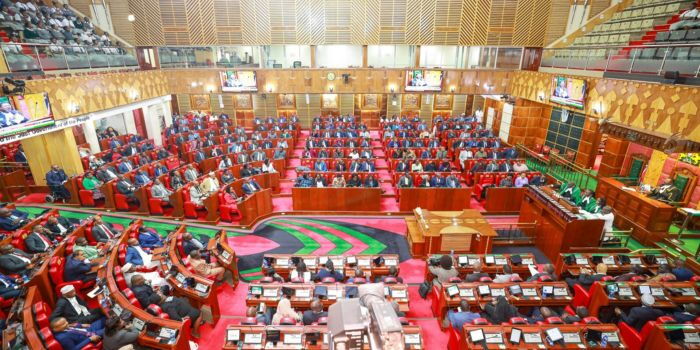A group of concerned residents from North Imenti Constituency in Meru County has officially launched a campaign to recall their long-serving Member of Parliament, Rahim Dawood, who is currently in his third consecutive term.
The residents have begun collecting signatures to initiate the legal process of removing him from office, citing several grievances.
The group has put forward four key reasons for their move. First and foremost is Dawood’s controversial vote in favor of the 2024 Finance Bill, a decision that, according to the group, went against the will and interests of the people of North Imenti.
Many constituents had voiced strong opposition to the bill due to its proposed tax increases and economic burden on ordinary citizens.
Secondly, they accused Dawood of failing in his oversight responsibilities by remaining silent in Parliament about the recent abductions and mysterious killings across the country, including in his own constituency.
They say his failure to speak out or push for investigations shows a lack of concern for public safety and justice.
Thirdly, the MP was criticized for participating in and voting for what the residents called the “irregular and politically motivated impeachment” of former Deputy President Rigathi Gachagua. They believe his involvement was not in the best interests of justice or the democratic process.
Lastly, residents pointed to Dawood’s inability to push for adequate budgetary allocations to ensure the completion of various national government projects in Meru, particularly stalled road construction projects. They argue that his leadership has failed to deliver essential infrastructure and services.
Their efforts to recall Dawood come just after the newly appointed Independent Electoral and Boundaries Commission (IEBC) team was officially sworn into office. The new IEBC Chairperson, Erastus Ethekon, took the oath on July 11 alongside six commissioners:
Ann Njeri Nderitu, Moses Alutalala Mukhwana, Mary Karen Sorobit, Hassan Noor Hassan, Francis Odhiambo Aduol, and Fahima Araphat Abdallah, who was later named Vice Chair.
How the Recall Process Works in Kenya
The Constitution of Kenya allows citizens to recall a sitting Member of Parliament (MP) or Member of County Assembly (MCA) under specific conditions and within certain timeframes.
Here’s how the process unfolds:
- Filing a Petition
A registered voter from the affected constituency must write and submit a petition to the IEBC requesting the recall of the MP. The voter must include valid reasons for the recall in the petition. - Time Limits
A recall can only be initiated after two years have passed since the last General Election and not within one year of the next General Election. Also, a recall attempt can only be made once per term for any MP or MCA. - Valid Reasons for Recall
Acceptable grounds for recall include:- Breaches of the integrity standards outlined in Chapter Six of the Constitution
- Misuse of public or constituency funds
- Conviction for serious electoral offences
- Signature Collection
The petitioner must collect signatures from at least one-third of registered voters in the constituency. Importantly, those signing must come from various wards—not just one area—to demonstrate wide support for the recall. - Verification Process
The IEBC has 30 days to verify the authenticity of the signatures. Once verified, it has 15 days to issue a formal notice to the Speaker of the National Assembly (or County Assembly for MCAs). - Recall Election
Within 90 days of the Speaker’s notice, IEBC must conduct a recall election, in which voters are asked: “Do you wish to recall your MP?” The outcome is decided by a simple majority of voters who participate. - By-election (if recalled)
If the MP is voted out, a by-election is held to choose a new representative. Interestingly, the recalled MP is allowed to run again in the by-election if they wish.
Growing Pressure on Underperforming MPs
Public dissatisfaction with Members of Parliament has been growing, especially since the 2024 anti-Finance Bill protests, where many Kenyans criticized legislators for failing to represent their views.
The swearing-in of the new IEBC has reignited this debate, with several communities across the country now considering using the recall option to demand better leadership.
In North Imenti, the campaign against Rahim Dawood marks one of the first serious recall efforts under the new IEBC team. Whether the campaign will reach the required threshold remains to be seen, but it signals a rising wave of political accountability driven by grassroots activism.
Join Gen Z New WhatsApp Channel To Stay Updated On time https://whatsapp.com/channel/0029VaWT5gSGufImU8R0DO30


